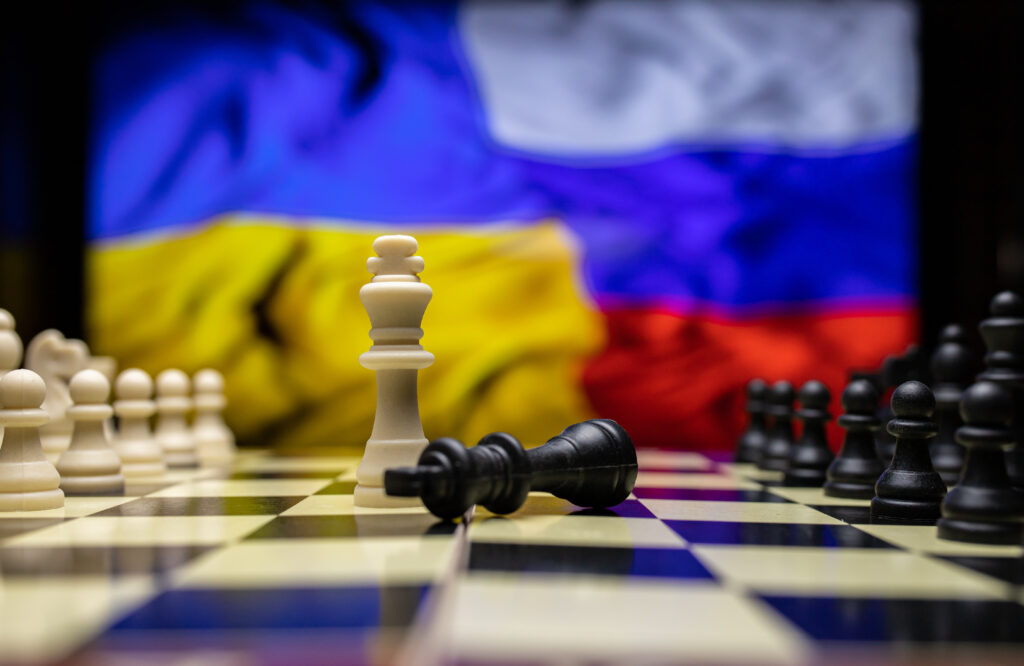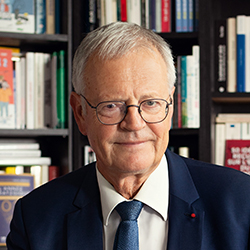Analyses
23 May 2025
War in Ukraine: Accepting Realism, Imposing It on Moscow

No peace agreement is yet in sight regarding the war in Ukraine. The meeting in Istanbul, which was not a summit, did not lead to a ceasefire, let alone a peace agreement.
Nevertheless, the discussions did result in a prisoner exchange — a welcome humanitarian measure. There was also a direct exchange between Donald Trump and Vladimir Putin, which failed to move things forward. The much-touted peace in 24 hours that Donald Trump had promised has still not materialised, more than 100 days after his return to power.
Vladimir Putin, for his part, remains entrenched in his position. According to him, it is not only necessary to end the war but also to address its root causes. This explains his demands, which are completely incompatible with what the Europeans and Ukrainians want.
The question is whether or not the United States will give in to Vladimir Putin’s version of events. JD Vance, the American vice-president, had warned that if no agreement were reached, the United States would let the various protagonists fend for themselves. If Ukraine were to lose not only US military aid but, more crucially, intelligence and satellite support, it would be in a very disadvantageous military position vis-à-vis Russia.
For now, Donald Trump has not gone that far. He has maintained the provision of material assistance, especially in terms of intelligence. Ukraine is not entirely left to its own devices.
What might be the terms of an agreement?
For a long time, Europeans and Westerners clung to a fiction I have often criticised as unrealistic — aligning themselves with Volodymyr Zelensky’s unattainable war aims. Ukraine will not recover the territories lost since 2022, let alone those lost since 2014. The US Army Chief of Staff warned of this as early as October 2022. The Ukrainian Army Chief of Staff said the same in October 2023 — and was dismissed.
The balance of power does not allow Ukraine to reconquer the lost territories. What is the alternative to abandoning that objective? Continuing a war whose course cannot be changed? At the cost of thousands of deaths, injuries, and mutilations?
There is another point where realism now seems to be prevailing: Ukraine will not join NATO. The fiction of Ukraine’s free choice had until now been maintained. But today, many European countries reject this prospect, as do the United States, even under Joe Biden. In the Trump II era, Ukraine and the Europeans are accepting objectives they previously refused to acknowledge.
This opens the field of possibilities. A ceasefire along the front line could be considered, postponing territorial issues. It would at least have the advantage of ending a war that is costing lives and material resources in vain.
On the other hand, Vladimir Putin’s demands are unacceptable. He wants far more than Ukrainian neutrality. He is asking Ukraine to withdraw from territories it currently controls but which Russia has annexed via referenda that hold no legitimacy under international law. Equally unacceptable is the demand for Ukraine’s disarmament, which would leave it completely defenceless and constitute a serious violation of its sovereignty. On these points, it is important that Europeans continue to assure Ukraine of their support.
Just as Donald Trump has pushed Ukraine towards greater realism by accepting a ceasefire along the front line and abandoning NATO integration, it would be entirely dysfunctional and extremely damaging to the future of Ukraine and its sovereignty if it were required to withdraw from territories where it still maintains a military presence and, above all, to accept disarmament.
Europeans must indeed put pressure on Washington — not regarding the unachievable, but on what is achievable. If the Europeans and the United States clearly state that they will continue to support Ukraine, that it will not be disarmed, but that the goal is no longer to retake the lost territories, then a realistic peace becomes conceivable. Vladimir Putin could be far more constrained to accept it if he knows that Donald Trump will not cave in completely, abandon everything, and meet all his demands.
If the aim is truly to end this war, which has dragged on for too long, then we must avoid chasing unrealistic goals. But we must also refuse to accept the unacceptable. We must find the least unjust peace possible — one that leads to a ceasefire and an end to the suffering of both the Ukrainian and Russian peoples.
This article is also available on Pascal Boniface’s blog and the Mediapart blog.

